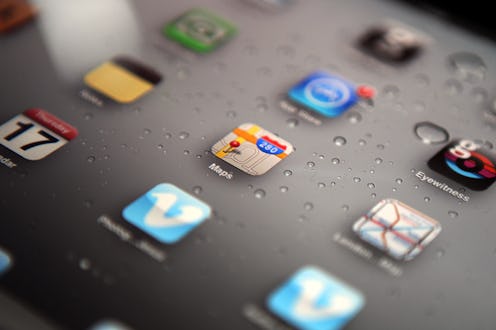Life
Do Health Apps Really Work?
Got health issues? There's an app for that... but buyer beware, because as it turns out, many health apps don't work, according to new research. Science has confirmed reasonable people's nagging suspicion that smartphone apps just aren't going to transform your health: according to a suite of recent studies, health-related apps are at best very mildly effective and, at worst, actively dangerous.
Researchers at the IMS Institute for Healthcare Informatics found that less than half of the 40,000 health apps available in 2013 on the Apple iTunes app store actually have anything to do with treating users. Instead, it reported that most of these health-related apps "have both limited and simple functionality," providing information that merely gives users an illusion of treatment. Knowledge may be power, but only when it's put to good, individualized use. An app that just links you to nutrition labels and reports the same data about exercise calorie counts that you could have Googled yourself just isn't going to change your life.
Or take for example this hypnosis-based weight loss app, "Virtual Gastric Band." Nothing about staring at your phone, zoning out, and hoping you slim down from it is going to harm you. However, non-research-based apps like "Virtual Gastric Band" do swindle people out of their money, give them false hopes, and distract them from health interventions that are actually likely to work.
More alarmingly, skin cancer apps that claim to identify dangerous melanomas on the basis of user-submitted photos could really actively threaten your health. According to one JAMA Dermatology study:
"The performance of smartphone applications in assessing melanoma risk is highly variable, and 3 of 4 smartphone applications incorrectly classified 30% or more of melanomas as unconcerning."
This means people who actually have life-threatening cancer might fail to see a dermatologist because their phone told them it was fine. That's why the Food and Drug Administration's most recent guidelines focus on regulating apps that claim to diagnose specific conditions, or cause your phone to act as another kind of regulated medical device: these kinds of apps present immediate risks to their users (unlike your run-of-the-mill calorie-counting app).
Alternatively, it's been found that wearable health monitors, like FitBit and the about-to-be released Apple Watch, are much more promising than health apps, because these devices take into account actual data about the user's body and how it's performing. It's difficult or impossible to lie (or lie by omission) to your wearable health monitor, whereas it's super easy to misreport calories or number of minutes of exercise to your smartphone weight loss app. All the same, health tools — even high-tech, research-based ones — can only help you if you let them. We remain far away from having devices that shock you out of your desire to eat junk food or skip the gym, so willpower still matters.
Image: Giphy
